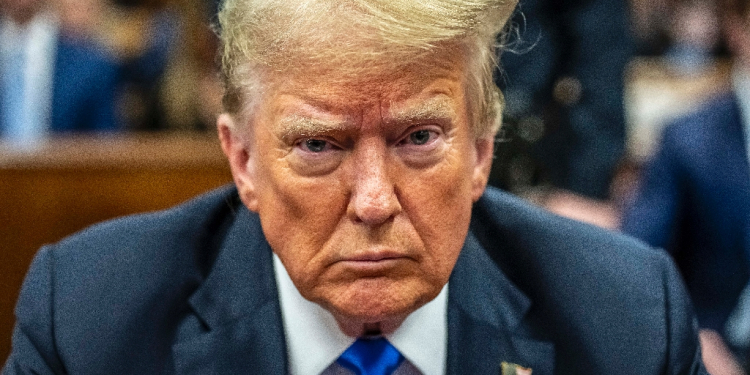(AFP) – Donald Trump’s case on charges of conspiring to overturn the 2020 election returns to a courtroom on Thursday, but a trial of the former US president appears remote. District Judge Tanya Chutkan is to preside over a status conference in a downtown Washington courthouse between prosecutors and Trump’s lawyers to lay out a schedule for pretrial proceedings in the historic case. The Republican presidential candidate, who waived his right to be present, will also be formally arraigned at the hearing and has instructed his attorneys to enter a not guilty plea.
Special Counsel Jack Smith filed a new indictment of the 78-year-old Trump last week on charges that he tried to subvert the results of the presidential election he lost to Democrat Joe Biden. The superseding indictment retains the same four charges against Trump as in an earlier version, but takes into account the recent Supreme Court ruling that a former president has broad immunity from criminal prosecution. It retains the same core, stating that Trump lost in 2020 but “was determined to remain in power” and attempted to subvert the results.
The Supreme Court ruled in July that an ex-president has broad immunity from prosecution for official acts conducted while in office, but can be pursued for unofficial acts. Trump was originally scheduled to go on trial on March 4, but that was put on hold while his lawyers pushed his immunity claim up to the Supreme Court. Thursday’s status conference will feature the first courtroom appearance by Smith and Trump’s attorneys since Chutkan regained control of the case a month ago.
Trump’s lawyers have been seeking to delay a trial until after November’s election between Trump and Democratic presidential nominee Kamala Harris, and it is virtually certain that it will not be held before the vote. Trump’s lawyers have proposed a calendar that would push any pretrial arguments not just past the election but until after the next president takes office, in January 2025.
Smith did not propose a timetable but said he would be ready to offer written arguments on the question of presidential immunity whenever the court requested them — and asked that the issue be given priority. The Supreme Court, in its July 1 ruling, left it to Chutkan, an appointee of former Democratic president Barack Obama, to determine what specific presidential actions might not enjoy immunity.
Smith said he would demonstrate that some of Trump’s acts after the 2020 election were not part of his official functions, to “distinguish his private electioneering activity from official action, and rebut the presumption of immunity.” Trump is accused of conspiracy to defraud the United States and conspiracy to obstruct an official proceeding — the January 6, 2021 joint session of Congress that was violently attacked by Trump supporters.
Trump is also accused of seeking to disenfranchise US voters with his false claims that he won the 2020 election. Trump was convicted in New York in May of 34 counts of falsifying business records to cover up hush money payments made to porn star Stormy Daniels, who alleged she had a sexual encounter with the real estate tycoon. Sentencing has been scheduled for September 18, but Trump’s lawyers have asked for his conviction to be tossed, citing the Supreme Court immunity ruling. Trump also faces charges in Georgia related to efforts to overturn the 2020 election.
– Chris Lefkow
© 2024 AFP











